Top bearing in China introduce,list main products and website if have
One of the top bearing manufacturers in China is C&U Group. C&U Group is a leading bearing manufacturer that specializes in producing a wide range of high-quality bearings for various industries. Their main products include deep groove ball bearings, tapered roller bearings, spherical roller bearings, cylindrical roller bearings, and angular contact ball bearings.
In addition to these main products, C&U Group also offers customized bearing solutions to meet the specific needs of their customers. Their bearings are known for their high quality, durability, and precision, making them a trusted choice for many industries.
C&U Group’s website is www.cugroup.com, where customers can learn more about their products, services, and manufacturing capabilities. The company is committed to innovation and continuous improvement, ensuring that they stay at the forefront of the bearing industry in China.
With a strong reputation for quality and reliability, C&U Group is a top choice for businesses looking for high-performance bearings in China. Their dedication to customer satisfaction and cutting-edge technology sets them apart as a leader in the industry.
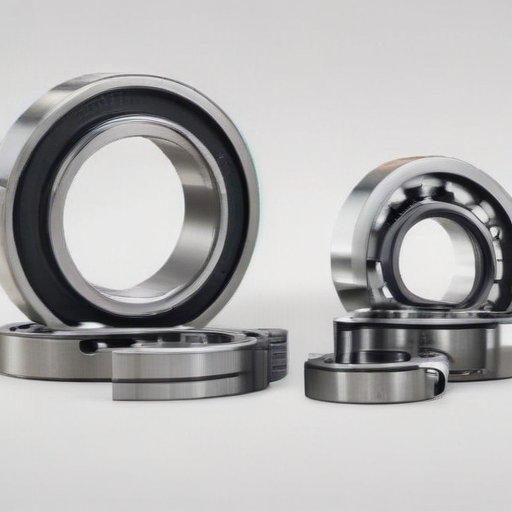
Types of bearing
Bearings are essential components in machinery, allowing for smooth rotation and movement of various parts. There are several types of bearings commonly used in industrial applications:
1. Ball bearings: This type of bearing utilizes balls to reduce friction between two moving surfaces. They are commonly used in applications where high speeds and low friction are required, such as in electric motors, fans, and conveyor systems.
2. Roller bearings: Roller bearings use cylindrical rollers instead of balls to reduce friction. They are capable of supporting heavier loads than ball bearings, making them ideal for applications such as vehicle wheel hubs, heavy machinery, and gearboxes.
3. Thrust bearings: Thrust bearings are designed to support axial loads, where the direction of the load is parallel to the axis of rotation. They are commonly used in heavy-duty applications such as automotive transmissions, machine tools, and hydraulic pumps.
4. Pillow block bearings: Pillow block bearings are mounted in housings with a bearing support, providing stability and alignment for shafts. They are commonly used in conveyor systems, agricultural equipment, and machinery with rotating shafts.
5. Spherical bearings: Spherical bearings are designed to accommodate misalignment and angular movement between two connected parts. They are commonly used in automotive suspension systems, construction equipment, and industrial machinery.
6. Needle bearings: Needle bearings are cylindrical roller bearings with a high length-to-diameter ratio, allowing them to support high radial loads in limited space. They are commonly used in automotive transmissions, steering systems, and aerospace applications.
In conclusion, bearings are crucial components in machinery and equipment, ensuring smooth operation and reducing friction. The choice of bearing type depends on the specific requirements of the application, such as load capacity, speed, and alignment. By selecting the appropriate bearing type, manufacturers can optimize performance and prolong the lifespan of their equipment.
Pros and Cons of Using bearing
Pros of using bearings:
1. Reduced friction: Bearings help reduce friction between moving parts, allowing them to move smoothly and efficiently.
2. Increased efficiency: By reducing friction and allowing for smooth movement, bearings help improve the efficiency of machinery and equipment.
3. Greater load capacity: Bearings can support heavy loads and distribute weight effectively, making them essential for many applications.
4. Long lifespan: High-quality bearings are durable and can withstand high speeds, temperature variations, and heavy loads, resulting in a longer lifespan for machinery and equipment.
5. Versatility: Bearings come in various shapes and sizes, making them suitable for a wide range of applications across different industries.
Cons of using bearings:
1. Cost: High-quality bearings can be expensive, especially for specialized applications or industries that require custom-made bearings.
2. Maintenance: Bearings require regular maintenance, including lubrication and monitoring for wear and tear, to ensure optimal performance and longevity.
3. Installation complexity: Improper installation of bearings can lead to premature wear and damage, requiring skilled technicians to install and maintain them correctly.
4. Noise and vibration: Bearings can generate noise and vibrations, especially at high speeds or when they are worn out, which can impact the comfort and safety of operators.
5. Environmental impact: Improper disposal of bearings or using low-quality bearings can have environmental consequences, as they may contain harmful materials or contribute to waste pollution.
Overall, bearings offer many benefits in terms of efficiency, load capacity, and versatility, but they also come with costs and maintenance requirements that need to be considered before choosing them for a particular application.
bearing Reference Specifications (varies for different product)
Bearings are essential components used in a variety of mechanical systems to facilitate smooth rotation or linear motion. Different types of bearings are designed to accommodate various types of loads and speeds. Some common types of bearings include ball bearings, roller bearings, and plain bearings.
Ball bearings consist of spherical balls within a ring, allowing for reduced friction and smooth rotation in applications such as motors and wheels. Roller bearings, on the other hand, use cylinders or tapered rollers to support heavy radial and thrust loads, commonly found in conveyor systems and vehicle wheels. Plain bearings, also known as bushings, offer simple and cost-effective solutions for low-speed applications with light loads.
When selecting bearings for a specific application, it is important to consider various specifications such as size, load capacity, speed ratings, materials, and lubrication requirements. These specifications can vary based on the specific type of bearing and the operating conditions of the system. It is essential to consult the manufacturer’s guidelines and reference specifications to ensure proper selection and installation.
Proper maintenance and lubrication are crucial for extending the service life of bearings and preventing premature failure. Regular inspection and replacement of worn-out bearings are essential to maintain the efficiency and reliability of mechanical systems.
In conclusion, bearings play a crucial role in ensuring the smooth operation of mechanical systems. By considering reference specifications and selecting the right type of bearing for the application, you can optimize performance, minimize downtime, and prolong the service life of your equipment.
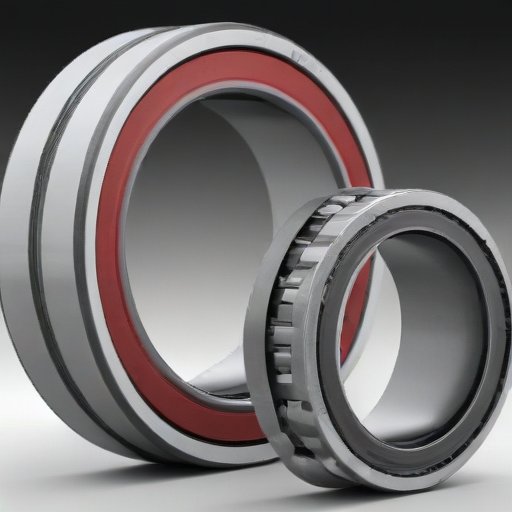
Applications of bearing
Bearings are used in various machinery and equipment to support and facilitate the movement of rotating parts. Some common applications of bearings include:
1. Automotive industry: Bearings are used in various components of vehicles such as engines, transmissions, wheels, and steering systems. They help reduce friction and support the rotating parts, enabling smooth and efficient operation of the vehicle.
2. Industrial machinery: Bearings are essential in industrial machinery such as pumps, compressors, and conveyors. They help reduce friction and wear between moving parts, increasing the lifespan and efficiency of the equipment.
3. Aerospace industry: Bearings are crucial in aircraft engines, landing gear systems, and helicopter rotors. They provide support and reduce friction in crucial components, ensuring safe and reliable operation of aircraft.
4. Construction equipment: Bearings are used in construction machinery such as cranes, excavators, and bulldozers. They help support the heavy loads and enable smooth rotation of various components, improving the performance and longevity of the equipment.
5. Power generation: Bearings are used in power generation equipment such as turbines, generators, and wind turbines. They help support rotating components and reduce friction, enabling efficient energy production.
6. Medical devices: Bearings are used in various medical devices such as MRI machines, X-ray machines, and surgical equipment. They facilitate the smooth movement of components, ensuring accurate and reliable operation of the equipment.
Overall, bearings play a crucial role in a wide range of industries and applications, helping improve the efficiency, performance, and reliability of machinery and equipment.
Material of bearing
Bearings are mechanical components that allow for smooth rotation and movement between two parts. They can be made from a variety of materials, each offering unique characteristics and advantages.
One common material used for bearings is steel. Steel bearings are durable, strong, and offer good resistance to wear and corrosion. They are often used in heavy-duty applications where high load capacities are required.
Another popular material for bearings is ceramic. Ceramic bearings are known for their high strength, low density, and resistance to wear and corrosion. They are often used in high-speed and high-temperature applications, such as in aerospace and automotive industries.
Plastic bearings are also commonly used in various applications. They are lightweight, corrosion-resistant, and cost-effective. However, they may not be as strong as steel or ceramic bearings and are more prone to wear over time.
Other materials used for bearings include brass, bronze, and stainless steel. Each material offers specific advantages depending on the application requirements, such as load capacity, speed, temperature, and environmental conditions.
In conclusion, the choice of bearing material depends on various factors such as the application requirements, load capacity, speed, and environmental conditions. Steel, ceramic, plastic, brass, bronze, and stainless steel are some of the commonly used materials for bearings, each offering unique characteristics and advantages. Proper selection of bearing material is crucial to ensure smooth operation, minimal friction, and extended lifespan of the components.
Quality Testing Methods for bearing and how to control the quality
There are several quality testing methods that can be used to ensure that bearings meet the required specifications. These methods include dimensional testing, surface roughness testing, hardness testing, material composition analysis, and performance testing.
Dimensional testing involves measuring the size and shape of the bearing to ensure that it meets the specifications provided by the manufacturer. This can be done using precision instruments such as calipers and micrometers.
Surface roughness testing involves measuring the surface finish of the bearing to ensure that it meets the required standards. This can be done using instruments such as profilometers or roughness testers.
Hardness testing involves measuring the hardness of the bearing material to ensure that it is within the specified range. This can be done using techniques such as Rockwell or Brinell hardness testing.
Material composition analysis involves testing the chemical composition of the bearing material to ensure that it meets the required standards. This can be done using techniques such as spectroscopy or chemical analysis.
Performance testing involves subjecting the bearing to simulated operating conditions to ensure that it performs as expected. This can include testing for load capacity, speed capability, and noise levels.
To control the quality of bearings, it is important to establish clear quality standards and specifications, conduct regular inspections and audits of the manufacturing process, and implement corrective actions when defects are identified. Additionally, it is important to work closely with suppliers to ensure that they meet the required quality standards and to continuously monitor and improve the quality of the bearings being produced.
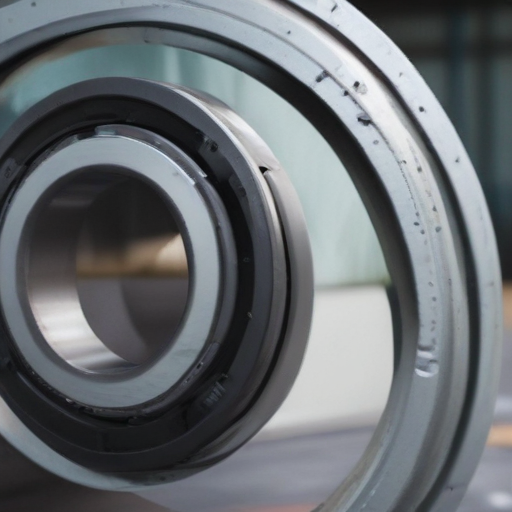
The Work Process and how to use bearing
The work process of using a bearing involves several important steps to ensure smooth operation and longevity of the bearing.
First, it is important to properly select the right type and size of bearing for the specific application. Factors to consider include load capacity, speed, temperature, and environmental conditions.
Next, the bearing should be properly installed according to the manufacturer’s instructions. This includes ensuring proper alignment, clearance, and lubrication. Improper installation can lead to premature bearing failure.
Once the bearing is installed, regular maintenance and monitoring are crucial to ensure optimal performance. This includes checking for signs of wear, contamination, and proper lubrication. Any issues should be addressed promptly to prevent further damage.
When using a bearing, it is important to follow recommended operating guidelines to avoid overloading or overheating the bearing. Proper handling and storage are also important to prevent damage during transportation or storage.
In summary, the work process of using a bearing involves proper selection, installation, maintenance, and monitoring to ensure reliable performance. By following these steps and guidelines, the bearing can function efficiently and effectively for its intended purpose.
bearing Importing questions including Cost,Supplier,Sample,Certification and Market
1. Cost: When importing products, it is important to consider the cost involved. This includes the cost of the product itself, shipping fees, customs duties, and any other associated expenses. Conducting research on the total cost will help determine the feasibility and profitability of the importing process.
2. Supplier: Finding a reliable and trustworthy supplier is crucial when importing products. Look for suppliers who have a good reputation, offer competitive pricing, and have experience with export regulations. Conduct thorough background checks and request references to ensure the supplier is legitimate and capable of meeting your importing needs.
3. Sample: Before placing a bulk order with a supplier, it is recommended to request a sample of the product. This will allow you to inspect the quality, design, and functionality of the product before committing to a larger purchase. Sampling can help prevent any surprises or issues with the product once it arrives.
4. Certification: Depending on the type of product being imported, certain certifications and standards may be required. Make sure to check with the relevant authorities to ensure that the product meets all necessary certifications and regulations. This will ensure compliance with local laws and regulations and help avoid any potential legal issues.
5. Market: Before importing products, it is important to research the target market to understand demand, competition, pricing, and consumer preferences. Conduct market analysis to identify potential opportunities and challenges in the market. Understanding the market will help in making informed decisions and developing a successful importing strategy.
How to find and select check reliable bearing manufacturers in China
When looking for reliable bearing manufacturers in China, there are a few key factors to consider.
First, it is important to do thorough research on the manufacturer’s reputation and experience in the industry. Look for companies that have a proven track record of producing high-quality bearings and have been in business for a significant amount of time. Checking online reviews and testimonials can also give you an idea of the manufacturer’s reliability.
Second, consider the manufacturer’s production capabilities and quality control processes. Ensure that the manufacturer has the necessary certifications and standards in place to guarantee the quality of their products. Visit their facility if possible to see their production process firsthand and assess the quality of their bearings.
Third, consider the manufacturer’s communication and customer service. A reliable manufacturer should be responsive to your inquiries, provide clear and detailed information about their products, and be willing to work closely with you to meet your specific requirements.
Finally, request samples or conduct a trial order before committing to a larger purchase. This will allow you to test the quality and performance of the bearings and ensure that they meet your expectations.
By taking these factors into consideration and carefully evaluating potential manufacturers, you can find a reliable bearing manufacturer in China that meets your needs and provides you with high-quality products.
Background Research for bearing manufacturers Companies in China, use qcc.com archive.org importyeti.com
When looking for bearing manufacturers in China, it is important to conduct thorough research to ensure that you are working with a reputable and reliable company. One way to do this is by using online databases such as qcc.com, archive.org, and importyeti.com.
Qcc.com is a popular Chinese business directory that provides detailed information on companies, including their contact details, business scope, and financial status. By searching for bearing manufacturers on qcc.com, you can easily find a list of potential suppliers and conduct further research to verify their credibility.
Archive.org is a useful tool for accessing archived versions of websites, allowing you to track the history and changes of a company’s online presence. By using archive.org to review the website of a bearing manufacturer, you can gain insights into their history, product offerings, and customer feedback.
Importyeti.com is a platform that specializes in tracking import and export data, providing valuable information on companies’ trade activities. By searching for bearing manufacturers on importyeti.com, you can discover details about their international sales, key markets, and business partners, helping you assess their experience and reliability in the industry.
Overall, leveraging these online resources can help you identify reputable bearing manufacturers in China and make informed decisions when selecting a supplier for your business needs.
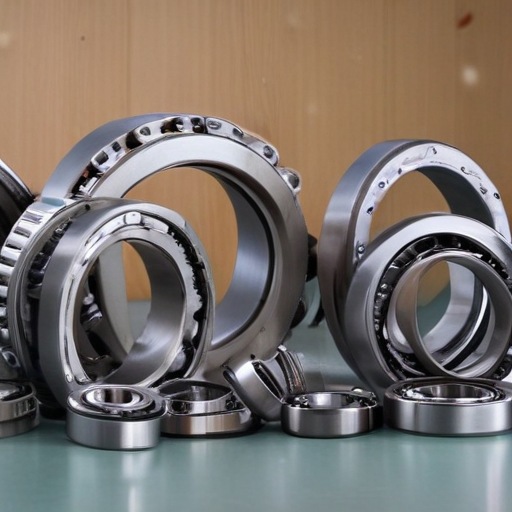
Price Cost Research for bearing manufacturers Companies in China, use temu.com and 1688.com
When conducting price cost research for bearing manufacturers in China, two popular websites to use are temu.com and 1688.com. These platforms provide a wide range of suppliers and products, allowing for a comprehensive comparison of prices and costs.
On temu.com, users can search for bearing manufacturers in China and easily compare prices based on factors such as quantity, material, and size. By contacting multiple suppliers through the platform, buyers can negotiate prices to ensure they are getting the best deal possible.
Similarly, 1688.com is another valuable resource for price cost research on bearing manufacturers in China. The website features a vast selection of suppliers offering competitive prices on a variety of bearings. Users can filter search results by price range, minimum order quantity, and other specific requirements to find the most cost-effective options.
By utilizing these websites, buyers can access a wealth of information on pricing and costs for bearing manufacturers in China. This information can help them make informed decisions and secure the best possible deals on quality bearings for their business needs.
Shipping Cost for bearing import from China
When importing bearings from China, one of the key considerations is the shipping cost. The shipping cost for bearing import from China can vary depending on various factors such as the size and weight of the shipment, the shipping method chosen, the destination country, and any applicable taxes and customs duties.
There are several shipping methods available for importing bearings from China, including air freight, sea freight, and courier services such as DHL, UPS, and FedEx. Air freight is generally the fastest but most expensive option, while sea freight is typically cheaper but slower. Courier services are a good option for smaller shipments that need to be delivered quickly.
The cost of shipping bearings from China can range anywhere from a few hundred dollars to several thousand dollars, depending on the above-mentioned factors. It is important to carefully consider these factors when choosing a shipping method to ensure that the total cost of importing the bearings remains within budget.
To minimize shipping costs, it is recommended to compare quotes from different shipping companies and negotiate for lower rates. It is also helpful to consolidate shipments to reduce the number of shipments and take advantage of bulk shipping discounts.
In conclusion, the shipping cost for importing bearings from China can vary depending on several factors, and it is important to carefully consider these factors to ensure that the total cost remains within budget. By comparing quotes, negotiating for lower rates, and consolidating shipments, importers can minimize shipping costs and streamline the import process.
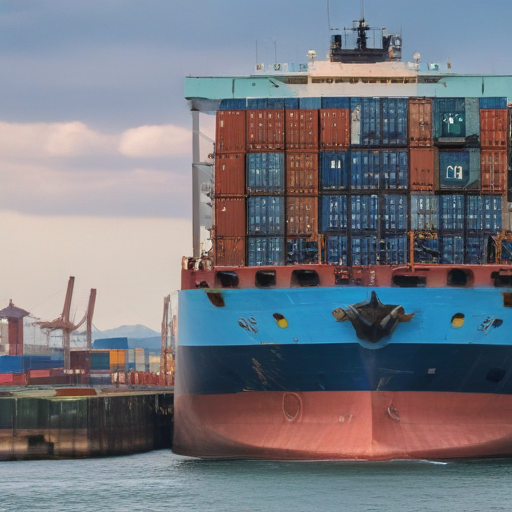
Compare China and Other bearing Markets: Products Quality and Price,Visible and Hidden Costs
China is known for its vast range of bearing products at competitive prices compared to other bearing markets. While China may offer lower prices for bearings, the quality of products can be variable. Some Chinese manufacturers produce bearings that meet international quality standards, while others may produce lower-quality products.
In comparison, other bearing markets such as Japan, Germany, and the United States are known for their high-quality bearing products. These countries have strict quality control measures in place, ensuring that the bearings meet industry standards. While the prices of bearings from these markets may be higher than those from China, consumers can be assured of the quality and reliability of the products.
When comparing visible and hidden costs, China may have lower visible costs due to its competitive pricing. However, hidden costs such as quality control, lead times, shipping, and warranty issues may arise when purchasing bearings from China. On the other hand, other bearing markets may have higher visible costs, but they generally have better quality control measures in place, reducing the chances of hidden costs.
In conclusion, China offers a wide range of bearing products at competitive prices, but the quality may vary. Other bearing markets such as Japan, Germany, and the United States offer high-quality products at higher prices, but with better assurance of product reliability. When considering visible and hidden costs, consumers need to weigh the balance between price and quality when choosing bearings from different markets.
Custom Private Labeling and Branding Opportunities with Chinese bearing Manufacturers
Chinese bearing manufacturers offer the opportunity for custom private labeling and branding, allowing businesses to establish their own unique brand identity in the market. With the option to customize packaging, logos, and product designs, businesses can create a distinct and recognizable brand that sets them apart from competitors.
By working closely with Chinese bearing manufacturers, businesses can ensure that their products meet their specific requirements and standards. Manufacturers can provide guidance and support throughout the customization process, helping businesses to create a product that aligns with their brand values and target market.
Private labeling and branding opportunities with Chinese bearing manufacturers also allow businesses to showcase their brand and build customer loyalty. Through consistent branding across products, businesses can create a cohesive brand image that resonates with consumers.
Additionally, partnering with Chinese bearing manufacturers for private labeling and branding offers cost-effective solutions for businesses looking to differentiate themselves in the market. By leveraging the expertise and resources of manufacturers, businesses can create high-quality products that meet their branding needs without the high costs associated with in-house production.
Overall, custom private labeling and branding opportunities with Chinese bearing manufacturers provide businesses with the chance to establish a strong brand presence in the market, differentiate their products, and build customer loyalty. With the support and guidance of manufacturers, businesses can create a unique and successful brand identity that drives growth and success.
Tips for Procurement and Considerations when Purchasing bearing
When purchasing bearings for procurement purposes, there are a few key tips and considerations to keep in mind to ensure you select the right product that meets your specific needs:
1. Identify the exact specifications: Before purchasing bearings, it is important to determine the exact specifications required for your specific application. Consider factors such as load capacity, speed, temperature, and environmental conditions to ensure the bearing will perform optimally.
2. Consider the type of bearing: There are various types of bearings available, including ball bearings, roller bearings, and needle bearings. Each type has its own advantages and disadvantages, so it is important to choose the right type for your specific application.
3. Quality and durability: When selecting bearings, it is important to prioritize quality and durability. Choose bearings from reputable manufacturers that have a track record of producing high-quality products that are built to last.
4. Cost considerations: While it is important to prioritize quality, it is also important to consider the cost of the bearings. Compare prices from different suppliers to ensure you are getting a fair price for the product.
5. Supplier reliability: When purchasing bearings for procurement, it is important to choose a reliable supplier that can provide consistent quality products and timely delivery. Consider factors such as lead times, customer service, and technical support when selecting a supplier.
By keeping these tips and considerations in mind, you can ensure that you select the right bearings for your procurement needs and avoid any potential issues or setbacks in the future.
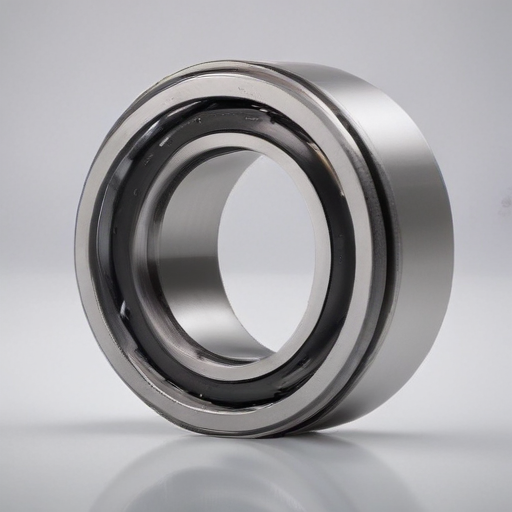
FAQs on Sourcing and Manufacturing bearing in China
1. How can I find reliable bearing manufacturers in China?
There are several ways to find reliable bearing manufacturers in China, including conducting online research, attending trade shows and exhibitions, working with sourcing agents or third-party quality control companies, and seeking recommendations from industry professionals.
2. What factors should I consider when sourcing bearings in China?
When sourcing bearings in China, it is important to consider the manufacturer’s quality control processes, production capacity, delivery timeframes, pricing, and after-sales support. It is also essential to ensure that the manufacturer adheres to international quality standards and certifications.
3. How can I ensure the quality of bearings manufactured in China?
To ensure the quality of bearings manufactured in China, you can conduct factory audits, request samples for testing, implement a comprehensive quality control process, and work with a third-party inspection company. It is also recommended to build a strong and transparent communication channel with the manufacturer to address any quality concerns promptly.
4. What are the common challenges when manufacturing bearings in China?
Some common challenges when manufacturing bearings in China include language barriers, cultural differences, intellectual property protection, transportation and logistics issues, and the potential for counterfeiting. It is crucial to work with experienced professionals who understand the local business environment and can navigate these challenges effectively.
5. How can I optimize my sourcing and manufacturing process for bearings in China?
To optimize your sourcing and manufacturing process for bearings in China, you can establish long-term partnerships with reliable suppliers, implement lean manufacturing principles, leverage technology for communication and quality control, and continuously monitor and evaluate your supply chain performance. Additionally, investing in staff training and development can help improve overall efficiency and productivity.
Why contact sourcifychina.com get free quota from reliable bearing suppliers?
SourcifyChina.com is a platform that connects businesses with reliable bearing suppliers in China. By contacting SourcifyChina.com, you can get a free quota to access their network of trusted suppliers. This is beneficial for businesses looking to source high-quality bearings at competitive prices.
By obtaining a free quota from SourcifyChina.com, you can save time and effort in searching for reliable suppliers on your own. The platform has already vetted and verified the suppliers in their network, ensuring that you are connected with reputable companies that can meet your bearing sourcing needs.
Additionally, by leveraging the expertise of SourcifyChina.com, you can access a wider range of bearing suppliers than you would be able to find on your own. This can help you compare prices, quality, and lead times to make an informed decision on which supplier to partner with.
Overall, contacting SourcifyChina.com to get a free quota from reliable bearing suppliers is a smart move for businesses looking to streamline their sourcing process and secure the best possible suppliers for their bearing needs.
